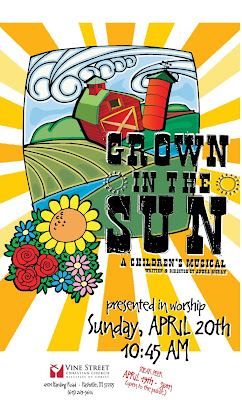You may want to read 2 Peter 3:8-15a and Mark 1:1-8 before you read this post.
Audio of this post is available.
It’s an old story. People were leaving the church because their expectations were not being met. In this case, they had come to faith in Christ expecting that his return was imminent; that soon, very soon he would come to judge the living and the dead, and reign in peace forever. They had come to faith in Christ with a sense of urgency, and that urgency began to dissolve when months of red-alert expectation turned into years of waiting, and years into generations.
Where is the promise of his coming? For ever since our ancestors died, all things continue as they were from the beginning of creation! (2 Peter 3:4)
Nothing has changed! Where is the promise of his coming? It’s a fair question, and most of 2 Peter is a response to it. The main argument in the letter is not new, because waiting for God’s promise to be fulfilled is something God’s people have always struggled with. The writer quotes a verse from Psalm 90, With the Lord one day is like a thousand years, and a thousand years are like one day. In other words, our sense of time and God’s are vastly different.
More importantly, though, what we perceive to be a delay is not an indication of God’s slowness, but rather points to the character of God as patient and merciful: The day has not come yet, because God does not want any to perish, not even one. And so Advent is as much our time of waiting as it is God’s: we are waiting for the coming of God’s reign in glory, while God is waiting for all of us to come to repentance.
With frustration we occasionally raise our voices and our hands to the heavens, “Where are you? What is taking you so long? Nothing has changed!” And the voice from heaven sounds almost like an echo, without the exasperation; it is a voice of great kindness, forbearance, and patience: “Where are you? What is taking you so long? Everything has changed – when will you repent?”
What we perceive as absence, is the very presence of God’s mercy. The passage from 2 Peter we heard this morning ends with the remarkable statement, “Regard the patience of our Lord as salvation.” What we perceive to be a delay of God’s salvation, is our salvation, the gift of time for us to practice true repentance. We are being saved by a God who waits patiently.
Only days after gunmen killed more than 170 men and women im Mumbai, we know the temptation to ask God for the final cosmic showdown in which the wicked are destroyed and the righteous rewarded.
Bring an end to the violence and the hatred – where is the promise of your coming?
I have prayed like that, only to realize that I didn’t consider my own hatred and violence, but conveniently projected them on the bad guys. Phantasies of a Hollywood-style day of vengeance tell us more about ourselves and our thirst for retribution than about God’s justice. God’s forbearance allows us to recognize our own deep need for healing grace and repentance, and God’s patience with all helps us to resist our own impatience with each other.
In accordance with God’s promise, we wait for new heavens and a new earth, where righteousness is at home.
We wait, noting and lamenting the distance between our world and one where righteousness isn’t homeless anymore. We wait, not passively, sitting back and expecting others to take care of our problems, but rather patiently, actively, and expectantly. We wait, because waiting prepares us for God’s coming.
The writer of 2 Peter encourages us, “Therefore, beloved, while you are waiting for these things, strive to be found by him at peace, without spot or blemish.”
The things for which we wait shape who we are becoming. Awaiting a world where righteousness is at home, we strive to live in righteousness. In every dimension of our lives, we turn away from complicity with the old world and turn to embrace the coming realm. The old age is marked by idolatry, sin, injustice, and violence; but the coming realm of God is faithfulness, forgiveness, righteousness, and peace.
We live in a world that aches under the weight of sin, but also echoes with the promises of God. We know how hard it is to live in the borderlands between what is and what shall be, between the promise and the coming true. We know the temptation to lower our sights to more manageable hopes, small things within our reach.
But today we are reminded that the dimensions of our hope determine the dimensions of our lives. Diminished hope results in a much smaller life. The writer of 2 Peter encourages us to resist the temptation and lead lives of holiness and godliness, lives shaped entirely within the horizon of God’s promise and future, lives of bold hope.
In the wilderness of these days, when peace is hard to find and systems built on more manageable hopes and old-fashioned greed are collapsing around us, a familiar figure shows up. Clothed with camel’s hair and a leather belt around his waist, and living on a diet of locusts and wild honey, he speaks of repentance and the forgiveness of sins.
His lifestyle embodies complete dependence on God: he only eats what the earth produces on its own, without the work of human hands. His message also directs our attention to complete dependence on God: confess your sins and be baptized. Look at yourselves and your world with open eyes and honesty, and embrace who you shall be in the world to come. He is the voice in the wilderness calling us to prepare the way of the Lord by becoming an Avent community, a community of the repentant and expectant.
The one who is more powerful than I is coming after me; I am not worthy to stoop down and untie the thong of his sandals. I have baptized you with water; but he will baptize you with the Holy Spirit.
And just a surely as he came then, he will come again. And just as his people waited then, we wait now. And just as time was a gift then for all people to ready themselves for the inbreaking of God’s time, so it is now.
We repent: We turn from what we have made of ourselves and the world, from the dead ends where we find ourselves, to the way of the Lord and the new heavens and the new earth where righteousness is at home. We turn from self-serving phantasies, delusions of grandeur and illusions of control to the mercy of God.
Mark’s gospel begins with what sounds like a title, The beginning of the good news of Jesus Christ, Son of God. Scholars long have wondered why he didn’t just call it The good news of Jesus Christ, Son of God, instead of its beginning. Nowadays they are debating whether this should be read as the headline for the opening verses, after which, in verse 9, Jesus of Nazareth steps onto the narrative stage; or if it should be read as the headline for the Galilean ministry of Jesus as opposed to his passion; or as the headline for the whole of Mark’s book and what it recounts. I’m leaning toward the latter: the story Mark tells is the beginning of the good news that is meant to unfold in the lives of its hearers and readers. He tells the beginning of a story whose final chapter will open with the return of Christ.
As hearers of Mark’s gospel and followers of Jesus, we are all characters in this story, living toward the grand finale. At the beginning of the church year we go back to the beginning of the gospel not out of historical curiosity, but to find a new beginning for ourselves: to find direction and purpose amid the chaos of this economic crisis; to grow the roots of peace in the barren landscape of terrorist violence, war, and our own violent phantasies; to start over with new courage in the wilderness of faith that has lost its urgency and passion.
Uncertain whether we can be among those who carry the story forward, we return to the beginning, to the voice of one crying out in the wilderness, the baptizer who speaks of repentance and the forgiveness of sins, and announces the coming one. The beginning of the good news of Jesus Christ is the beginning of God’s future in the midst of this old world. For us, it all begins again as we hear the words again, and this time we are a bit less self-assured and a bit more aware that God’s patience is indeed our salvation.
Peace enters our hearts as we encounter John again who reminds us that we need not be tied to our fears, our guilt, or our shame, but are free to embrace God’s forgiveness. Peace takes root in our hearts as we remember what we await: a world where righteousness is at home. That peace shapes our thoughts, words, and deeds as we begin again to live into the future God has prepared for us.



